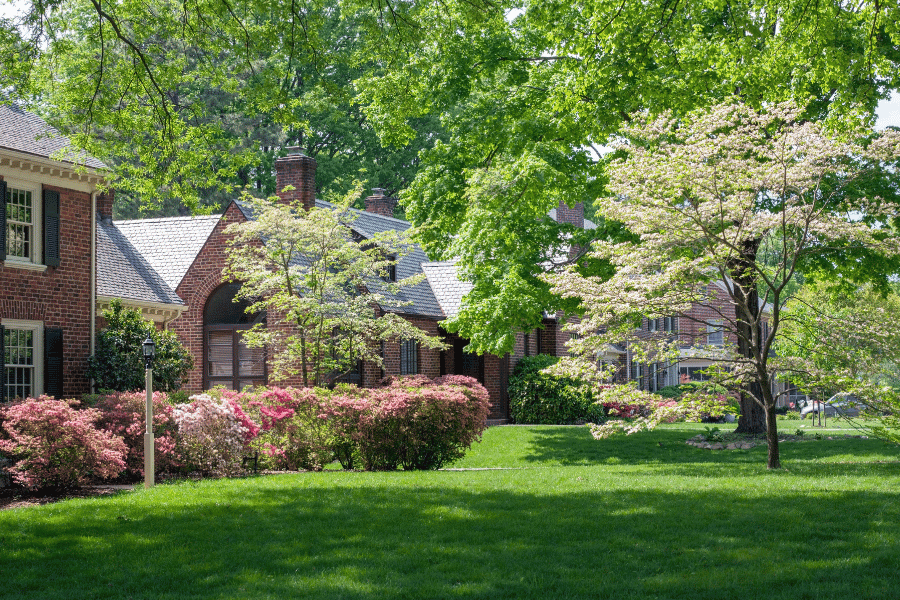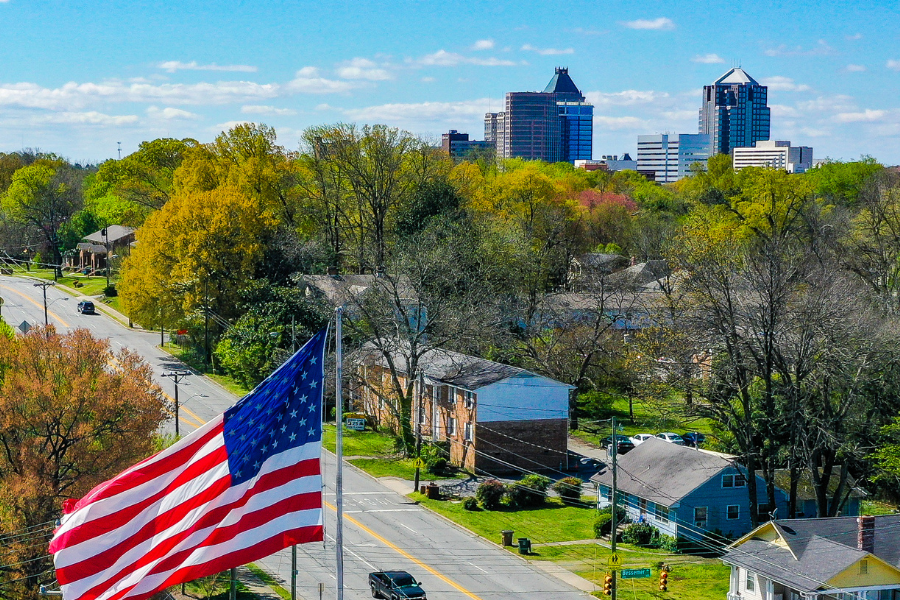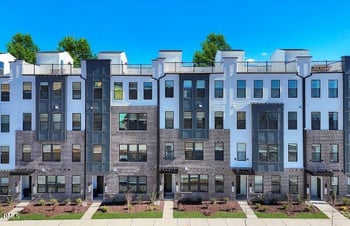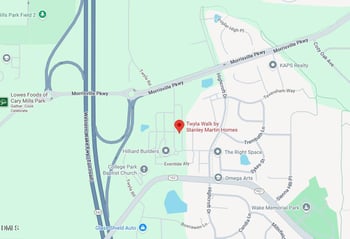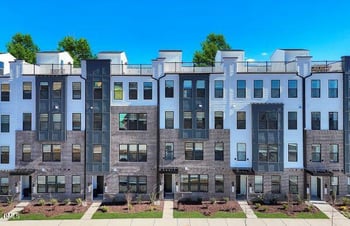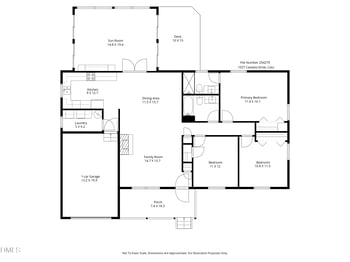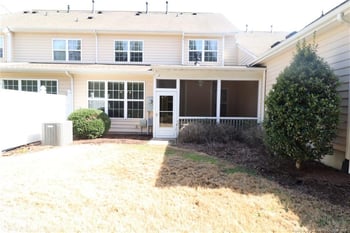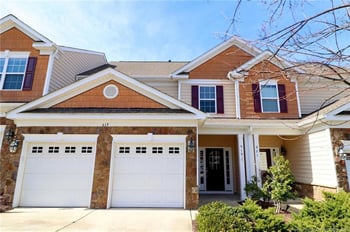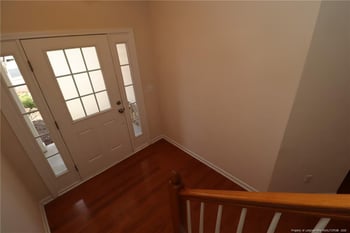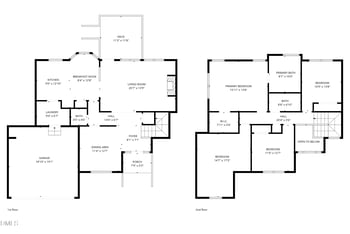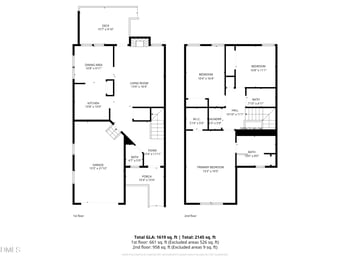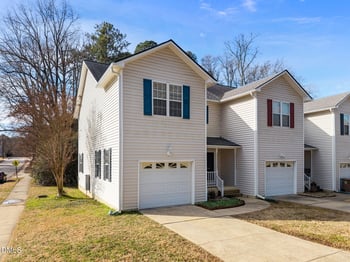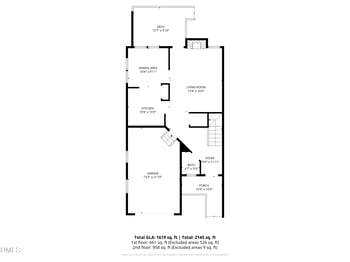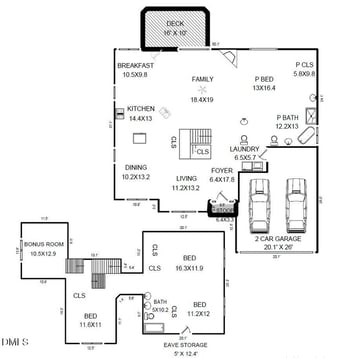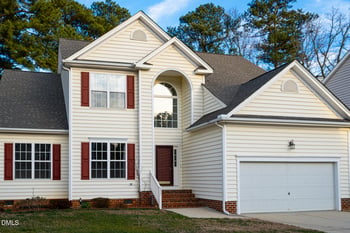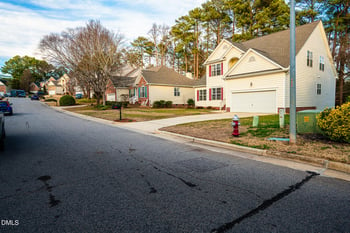Cost of Living in Cary
Is Cary, NC, an expensive place to live? Here is what you need to know about how much it costs to live in Cary.
Nestled in the heart of the Triangle area, Cary has transformed from a small town into one of North Carolina's most desirable communities. With a growing population of over 180,000 people, Cary offers an exceptional blend of suburban charm, urban amenities, and economic opportunity that continues to attract families and professionals from across the nation.
Positioned with easy access to Research Triangle Park, Raleigh-Durham International Airport, and major employment centers, Cary offers a high quality of life with access to metropolitan opportunities.
Cary is one of the safest places to live in the country and has established itself as a community where families thrive. Featuring sought-after real estate, educational excellence, a thriving job market, and award-winning recreation, it is no wonder that so many people want to move to Cary.
But what does living in this thriving town outside Raleigh cost? As your trusted real estate professionals at Raleigh Realty, we've compiled the most current data to give you a comprehensive picture of Cary's cost of living in 2025.
Here is what you need to know about what it costs to live in Cary.
1. Cost of Living in Cary, NC
Understanding Cary's cost of living requires looking at how the town compares to national averages and neighboring Triangle communities. The data reflects Cary's premium position in the region.
Cary's overall cost of living is 7% higher than the national average. This premium reflects the town's exceptional amenities, location, and quality of life. While this might seem significant, it's essential to consider these numbers within the broader Triangle region and consider what drives these costs.
Cary's cost of living is 33% higher than the North Carolina state average, making it one of the state's more expensive communities. Compared to Raleigh's cost of living, Cary is the more expensive option but offers many unique amenities not offered anywhere else.
Several factors contribute to Cary's higher cost of living:
Premium Location: Proximity to Research Triangle Park, excellent transportation access, and positioning between major employment centers in Raleigh, Durham, and Chapel Hill creates natural demand that drives up costs.
Quality of Life: The town's award-winning parks, top-rated schools, and municipal services require funding reflected in property values and local costs.
Demographics and Demand: With a highly educated, affluent population, Cary supports businesses and services that cater to higher-income households, which can drive up retail and service costs.
Here are some typical expenses and cost of living averages in Cary, NC:
| Cost of Living Item | Average Price |
| Median Rent | $1,923/month |
| Energy Bill | $186.25/month |
| Phone Bill | $175.55/month |
| Loaf of Bread | $3.97 |
| Gallon of Milk | $4.72 |
| Doctor's Visit | $164.92 |
| Dentist Visit | $134.62 |
*Data Sourced from Payscale.
For prospective residents, understanding Cary's cost structure means budgeting more than you might expect. However, this premium should be weighed against the substantially higher income potential in the Triangle region and the long-term benefits of living in a community with such strong fundamentals.

2. Income Levels
The income data from Cary and North Carolina residents shows that the annual income is higher than the national rate. One of Cary's most attractive features is its strong local economy and high earning potential.
The median household income in Cary stands at $129,399, with the average per capita income reaching $80,360. This income level is awe-inspiring when broken down by age groups:
- Residents aged 25 to 44 earn a median of $128,522
- Those between 45 and 64 years old have the highest median household income at $164,997
- The average annual household income across all residents is $165,282
Comparing Cary's unemployment rates with national data shows that they are lower than the national average. As of June 2025, Cary's unemployment rate is 2.9%, lower than the national rate of 4.2%.
3. Housing Costs
Housing represents the most significant expense for most Cary residents, and the market reflects the town's desirability and continued growth. Housing costs in Cary are 23% higher than the national average, with a median list price of $742,776.
The price of homes in Cary varies significantly based on location, size, and amenities. Cary's higher housing costs are due to several key factors, including its premium location, high quality of life, and access to excellent schools and amenities.
Home to many safe neighborhoods, Cary's homes sell after an average of 41 days on the market. For those seeking luxury living, Cary offers several premier neighborhoods, representing the pinnacle of Triangle area real estate.
Two communities stand out as the most expensive and exclusive:
Preston
Preston is Cary's largest upscale neighborhood and one of the Triangle's most prestigious communities. The homes for sale in Preston are large and well-maintained.
Located five miles northwest of downtown Cary, this golf course community was developed in the 1990s to attract executives and top-tier professionals to the Research Triangle area.
MacGregor Downs
MacGregor Downs is one of Cary's most affluent neighborhoods, ranking among the top 15% of highest-income neighborhoods in America.
This exclusive community consists of three distinct areas: MacGregor Downs, MacGregor West, and Balmoral Townhomes. The real estate in MacGregor Downs is perfect for families.

4. Utilities
One area where Cary residents catch a break is utility expenses. Utility prices in Cary are 10% lower than the national average, providing some relief from higher housing costs.
Cary's municipal utility services are known for reliability and efficiency. The town's investment in infrastructure means residents rarely experience service disruptions, adding value beyond the monthly cost.
Water and Sewer: The town of Cary provides water to all city residential and commercial utility customers. Cary uses a tier system to determine the water rates. Expect to pay around $50 to $70 monthly for water and sewer services.
Internet: Internet service typically costs between $50 and $100 per month, depending on speed and provider
Electricity: While specific Cary data varies, Triangle area residents generally pay competitive rates. Duke Energy is the leading provider for many Cary residents. According to EnergySage, the average monthly electric bill in Cary is $256.
Waste management: The town of Cary is also responsible for garbage, recycling, and yard waste, and charges a sanitation fee of $23 a month.

5. Transportation Expenses
Transportation expenses like bus fares and gas prices are 8% lower than the national average. In Cary, the transportation index stands at 6.9% lower than the national average, including:
- Fuel costs
- Vehicle insurance
- Routine maintenance
- Public transportation options
The town of Cary provides multiple transportation options. Safe roadways for bicycles and pedestrians exist, and various mass transit options are available.
GoCary is the town bus that offers reliable transportation around Cary seven days a week. There are fixed routes and a door-to-door service that caters to senior citizens (age 60 or older) and disabled individuals.
Here are the rates for GoCary:
| Single Ride | $1.25 |
| Day Pass | $2.50 |
| 7-day pass | $12.00 |
| 31-day pass | $40.00 |
Youth between the ages of 13 and 18 always ride for free with a Youth GoPass. This benefit ensures teens can attend school, jobs, parks, etc.
Along with GoCary, the transportation service GoTriangle is available, which provides transportation to the Triangle region through bus and shuttle services, paratransit services, ride-matching, and vanpools.
Cary's central location in the Triangle provides easy access to:
- Research Triangle Park employment centers
- Raleigh-Durham International Airport (20-30 minutes)
- Downtown Raleigh cultural and entertainment districts
- Major highways including I-40, I-440, and NC-540
The town of Cary accommodates bicycling, recently allocating $1 million to improving bicycling facilities and programs. An array of walking trails and beautiful greenways are safe for all pedestrians.
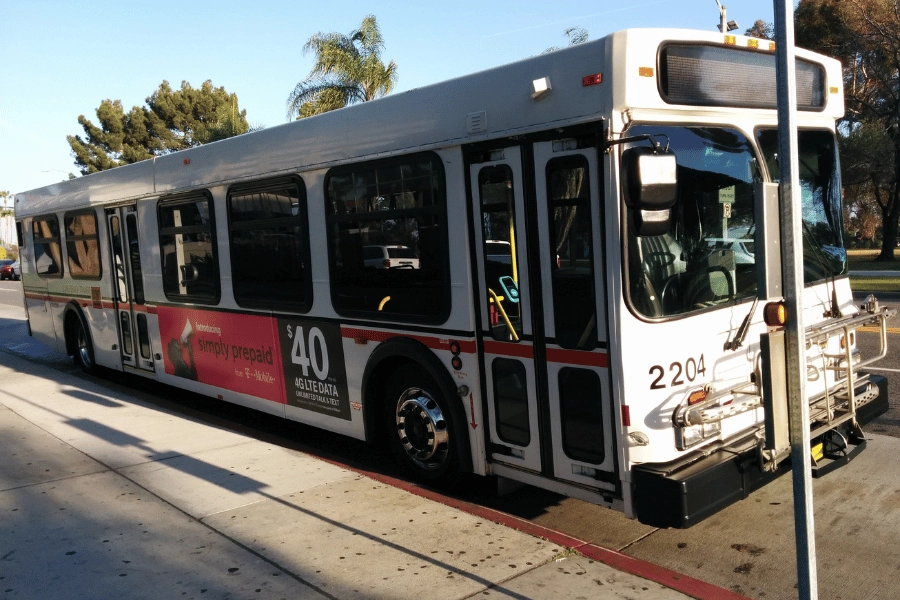
6. Grocery and Daily Expenses
Grocery costs in Cary align closely with national averages, with food prices running approximately 1% higher than the national baseline. However, this modest premium comes with access to a diverse range of shopping options and higher-quality grocery stores that cater to the community's demographics.
A typical grocery bill for a family of four in Cary ranges from $600 to $800 per month, depending on dietary preferences and shopping habits. The average cost is $504 per month for a household. North Carolina's average food cost per person is $302.50 monthly, or approximately $3,630 annually.
Cary features a diverse dining scene, with restaurants offering everything from casual to fine dining. The town's restaurant costs reflect its affluent demographics, with dining expenses typically running 10-15% higher than state averages but offering exceptional variety and quality.
.png)
7. Healthcare Costs
Cary residents benefit from access to some of the Southeast's premier healthcare systems, though this premium care comes with corresponding costs. Healthcare in Cary is 13% higher than the national average. Due to the concentration of specialist services and premium facilities, costs here may run slightly higher.
While healthcare costs in Cary run above national averages, residents benefit from:
- Proximity to Research: Access to clinical trials and cutting-edge treatments through major academic medical centers
- Specialist Availability: Concentration of specialists and sub-specialists reduces travel time and costs for complex care
- Quality Rankings: Duke Raleigh Hospital is ranked as one of the best hospitals in North Carolina
- Expanding Services: Recent regulatory approvals for new hospitals in Wake County represent one of the fastest expansions of new hospitals in the county's history
Methodlogy
Data was sourced from Payscale and the U.S. Census Bureau to determine the cost of living in Cary, NC.
FAQ
Is Cary, North Carolina, a safe place to live?
Cary, North Carolina, has some of the lowest crime rates and is consistently ranked among the safest places to live.
Is it expensive to live in Cary, North Carolina?
While the cost of living continues to rise across the nation, the cost of goods and services in Cary remains lower than the national average.
How's the weather in Cary, North Carolina?
The climate in Cary is warm and temperate, with an average annual temperature of 68.5 degrees Fahrenheit. You can expect consistent rainfall and a short winter season.
Are you Ready to Explore Cary?
Understanding the cost of living is the first step in your home-buying journey. At Raleigh Realty, we help clients navigate Cary's competitive market and find properties that fit their lifestyle and budget.
Our experienced agents understand the unique offerings of different Cary neighborhoods and can help you identify opportunities that maximize your investment while meeting your family's needs. From first-time buyers to luxury home purchasers, we're here to guide you through every step of the process.
Contact Raleigh Realty today to schedule a consultation and explore what Cary offers. With our local expertise and commitment to client service, we'll help you make an informed decision about one of the Triangle area's most desirable communities.
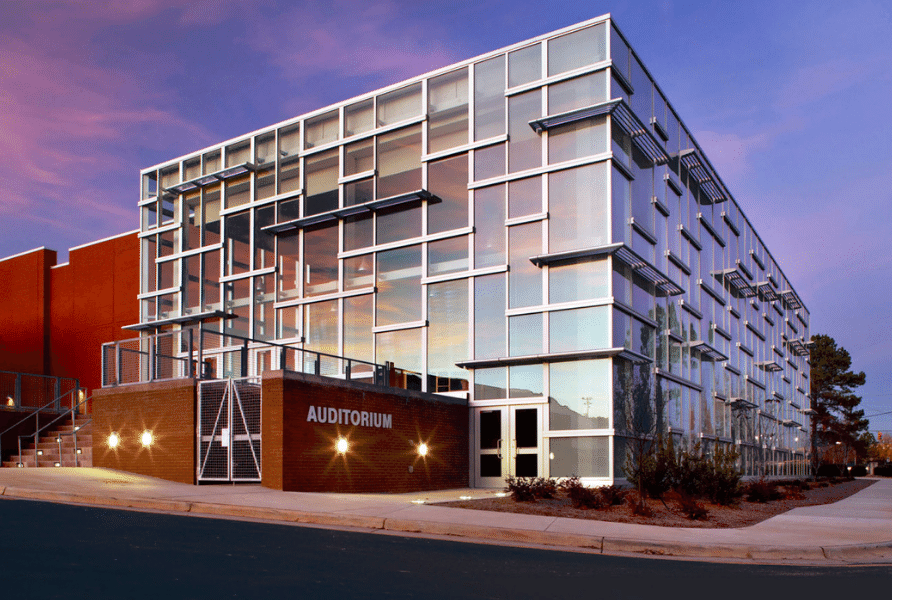
![11 Best Neighborhoods in Cary, NC [2026 Guide]](https://raleighrealty.com/rr-images/uploads/blogs/1743022247326-325438967-Beautiful Residential Home with Brick - Neighborhoods in Cary.png)
![10 Things to Know BEFORE Moving to Cary, NC [2026 Guide]](https://raleighrealty.com/rr-images/uploads/blogs/1742507582381-855732085-Downtown Cary Park Fountain (1).png)
